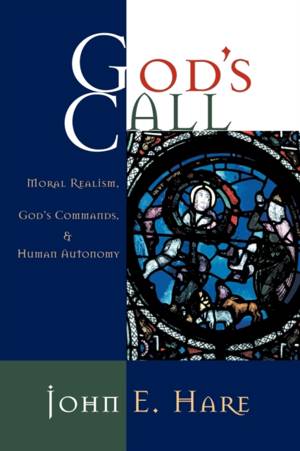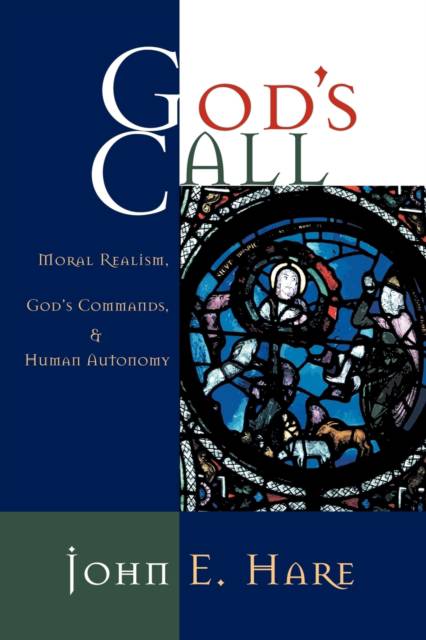
- Retrait gratuit dans votre magasin Club
- 7.000.000 titres dans notre catalogue
- Payer en toute sécurité
- Toujours un magasin près de chez vous
- Retrait gratuit dans votre magasin Club
- 7.000.0000 titres dans notre catalogue
- Payer en toute sécurité
- Toujours un magasin près de chez vous
24,45 €
+ 48 points
Description
There has been a debate between modern ethicists who see moral judgments as objectively corresponding to a moral reality independent of human opinion and those who insist that moral judgments are essentially expressions of our will. In this excellent philosophical work John Hare outlines a theory that combines the merits of both views, arguing that what makes something right is that God calls us to it. In the first chapter Hare gives a selective history of the sustained debate within Anglo-American philosophy over the last century between moral realists and moral expressivists. Best understood as a disagreement about how objectivity and subjectivity are related in value judgment, this debate is of particular interest to Christians, who necessarily feel pulled in both directions. Christians want to say that value is created by God and exists whether we recognize it or not, but they also want to say that when we value something, our hearts' fundamental commitments are also involved. Hare suggests "prescriptive realism" as a way to bring both perspectives together. The second chapter examines the divine command theory of John Duns Scotus, looking particularly at the relationship that Scotus established between God's commands, human nature, and human will. Hare shows that a Calvinist version of the divine command theory of obligation can be defended via Scotus against natural law theory as well as against contemporary challenges. A significant theme treated here is the view that the Fall disordered our natural inclinations, rendering them useless as an authoritative source of guidance for right living. In the last chapter Hare moves to the key philosophical juncture between the medieval period and our own time -- the moral theory of Immanuel Kant in the late eighteenth century. Modern moral philosophy has largely taken Kant's work as a refutation of divine command theory and a refocusing of the discussion on human autonomy. Hare shows that Kant was in fact not arguing against the kind of divine command theory that Hare supports. He discusses what Kant meant by saying that we should recognize our duties as God's commands, and he defends a notion of human autonomy as appropriation. Featuring original moral theory and fresh interpretations of the thought of Duns Scotus and Kant, God's Call is valuable both for its overview of the history of moral debate and for its construction of a sound Christian ethic for today.
Spécifications
Parties prenantes
- Auteur(s) :
- Editeur:
Contenu
- Nombre de pages :
- 136
- Langue:
- Anglais
Caractéristiques
- EAN:
- 9780802849977
- Date de parution :
- 31-07-01
- Format:
- Livre broché
- Format numérique:
- Trade paperback (VS)
- Dimensions :
- 152 mm x 229 mm
- Poids :
- 208 g

Les avis
Nous publions uniquement les avis qui respectent les conditions requises. Consultez nos conditions pour les avis.






